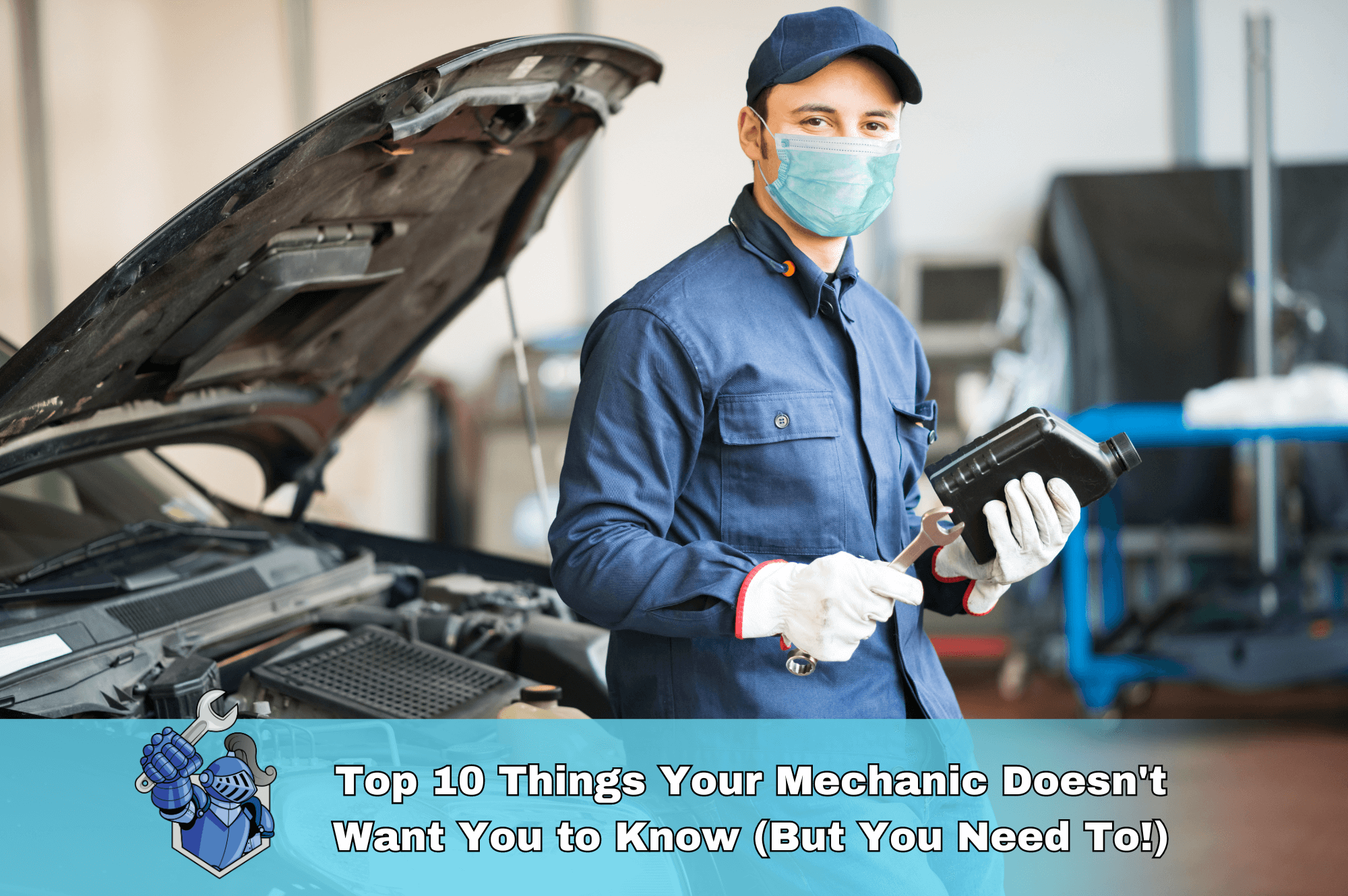Have you ever walked out of a mechanic's shop feeling like you just paid an arm and a leg for a simple fix? Or worse, had your car break down shortly after a supposedly "thorough" inspection? You're not alone. There's an information gap between mechanics and car owners, and it's costing you money. But knowledge is power. This article reveals the secrets your mechanic doesn't want you to know, empowering you to make informed decisions and save money on car repairs.
Unnecessary Repairs
A recent study by the Automotive Service Association found that 34% of car repairs are unnecessary. Mechanics may recommend replacing a part that could be easily repaired, or suggest a costly service that isn't due for thousands of miles. For example, a shop might recommend replacing spark plugs at 30,000 miles even though your car manufacturer recommends replacing them at 100,000 miles.
Markups on Parts
A 2023 Consumer Reports study found that mechanics mark up parts by an average of 40%. That means a $100 part could cost you $140 at the shop. Before authorizing any repairs, ask your mechanic for the part number and price, then compare it to prices from online retailers like AutoZone or NAPA Auto Parts, or check with your local auto parts stores. You can also search online forums and communities for your car model to see what others have paid for similar parts.
Overcharging for Labor
Labor rates vary depending on your location and the mechanic's experience, but national averages can be found online. Some shops may pad labor hours or charge for work not performed. For instance, they might charge you for an hour of labor when the job only took 30 minutes. To avoid being overcharged, ask for a detailed breakdown of labor costs and compare them to estimates from other shops. You can use online tools like RepairPal's Fair Price Estimator to get an idea of what you should expect to pay for common repairs.
Coolant Flushes and Other Upsells
Your mechanic may recommend a coolant flush, fuel injection cleaning, or other "routine" maintenance services more often than your car manufacturer suggests. Most modern coolants are designed to last 100,000 miles or more, and fuel injection cleaning is rarely necessary unless you're experiencing specific performance issues. Follow your car's maintenance schedule and question recommendations not in line with it.
Misleading Diagnostics
Misdiagnosis can be a result of incompetence or a deliberate attempt to increase repair costs. A mechanic might tell you that your transmission needs to be replaced when the problem is actually a faulty sensor. If a mechanic recommends a major repair, always seek a second opinion.
"Lifetime" Parts Aren't Always What They Seem
"Lifetime" warranties often come with fine print. The warranty may only cover the original purchaser or be voided if you don't maintain your car properly. Some warranties also have time limits or mileage restrictions. Before investing in "lifetime" parts, read the warranty terms carefully and consider the cost versus the potential benefit.
The "Check Engine" Light Isn't Always a Crisis
The check engine light can illuminate for various reasons, some minor (like a loose gas cap) and some major. However, mechanics may use the check engine light as a scare tactic to pressure you into expensive repairs. Don't panic. Get a diagnostic reading to understand the problem before authorizing repairs.
"Genuine" Parts Aren't Always Necessary
Original Equipment Manufacturer (OEM) parts are made by the same company that manufactured your car, while aftermarket parts are made by other companies. Aftermarket parts can be just as reliable as OEM parts and are often much cheaper. In some cases, aftermarket parts may even be superior in quality. Discuss your options with your mechanic and don't be afraid to ask if they're willing to use aftermarket parts.
The Power of Preventive Maintenance
Regular maintenance can significantly reduce the risk of breakdowns and costly repairs. For example, changing your oil and filter regularly can help prevent engine wear and extend the life of your engine. Follow your car's maintenance schedule diligently and keep records of all services performed.
The Most Reliable Car Brands
Choosing a reliable car brand can save you money on repairs in the long run. According to J.D. Power's 2023 Vehicle Dependability Study, the most reliable brands include Lexus, Porsche, and Kia. Less reliable brands, such as Land Rover and Chrysler, tend to have higher repair costs.
FAQ Section
What should I do if I feel my mechanic is overcharging me
Get a second opinion from another mechanic. If the estimates vary significantly, ask the first mechanic for a detailed explanation of the charges. You can also try negotiating the price or asking for a discount.
How can I find a trustworthy mechanic
Ask friends and family for recommendations, read online reviews, and look for certifications from organizations like the National Institute for Automotive Service Excellence (ASE). You can also use online directories like MechanicNet to find local shops.
What are some common car repair scams
Common scams include unnecessary repairs, overcharging for parts and labor, recommending low-quality aftermarket parts, and performing unnecessary services.
Should I always use genuine parts for my car
Not necessarily. Aftermarket parts can be a cost-effective alternative but choose reputable brands and ensure they meet or exceed OEM specifications.
Want to learn more about car maintenance and repairs?
Check out our comprehensive guide on the NobleQuote Learning Center.
By understanding the secrets your mechanic doesn't want you to know, you can take control of your car repair experiences, save money, and keep your vehicle running smoothly for years to come.
Suggestions for you
Read MoreLet’s work together
Every week we showcase three charitable organizations that our donations are sent to. Our clients are able to choose which of these three will receive their gift when they add coverage to their vehicle...




